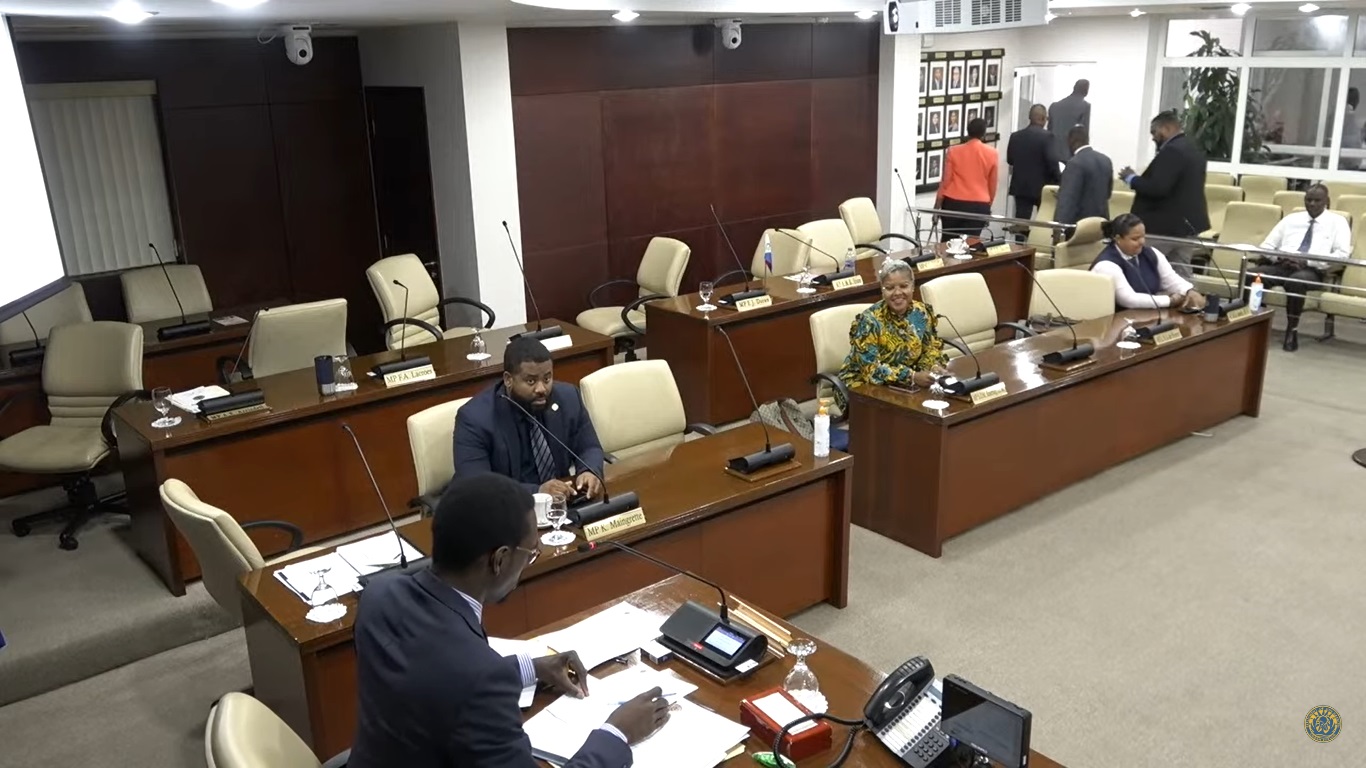New rule: no more meetings of Parliament without a quorum

PHILIPSBURG — No more meetings of parliament without a quorum; assistance from the police to remove belligerent parliamentarians from a meeting and undesired visitors from the parliament building; and rules for virtual meetings when circumstances require this. These are the most significant changes to the rules of order for parliament. The new rules went into effect per May 1.
The previous rules of order made it possible to hold a meeting without the required quorum. When after two meetings without a quorum, the third meeting also failed to have a quorum the meeting could then continue. No more: under the new rules, when such a situation arises, the parliament convenes a complete new meeting.
When the president of parliament takes the word away from a member of parliament he (or she) was no longer allowed to take part in the deliberations about the topic at hand. That was the old rule. Now the president can exclude such a parliamentarian from all meetings that take place on the day when he was banned from speaking. The MP must leave the meeting immediately, a rule that will be enforced, if necessary, with the assistance of the police.
The new rules give the president of parliament even more muscle: she can deny access to the parliament building to persons and also call on the police to keep these people out. The president must however present serious reasons for taking such a measure but that’s all: parliament does not have a say in such a decision.
St. Maarten’s Constitution already specifies under which circumstances a parliamentarian is not allowed to cast a vote, but the presidium has now incorporated it in its new rules of order. Article 53.1 of the Constitution declares that members of parliament do not vote on issues, appointments, suspensions and dismissals that personally concern their spouses or their family members up to the second degree.
The new rues furthermore establish that all decisions about affairs will be taken by absolute majority. (This means that such decisions require the approval of half the voting MPs plus 1; are all 15 MPs present, 8 is the absolute majority. When there are just eight MPs in a meeting, approval requires 5 votes).
Another issue handled in the new rules concerns the behavior of the public that attends meetings of parliament. Based on the old rules signs of approval or disapproval from the public were prohibited and the president could order a person who violated the rule to leave. Under the new rules, the president can call upon the police for assistance to remove such a person from the meeting.
A new article (94a) regulates under which circumstances the parliament can hold virtual meetings. These so-called zoom-meetings already took place during the Covid-19 pandemic. The new rules state that a decision to switch from brick-and-mortar meetings to virtual meetings can take place during a serious disruption of the public order whereby the life, the health and the wellbeing of many are at stake, or whereby the environment and large material interests are under threat. Such virtual meetings require the approval of parliament.
Photo image caption: The moment when the ‘Super 7’ opposition members walked out of Tuesday’s public meeting of Parliament on May 7, leaving the meeting without a quorum after a roll call.
###
ADVERTISEMENT



























